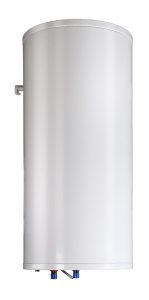 It’s easy to take the water heater in your home for granted. But consider how essential hot water is to your daily routines. Losing access to hot water isn’t something you want to deal with—so it’s vital to give some occasional consideration to routine care for the water heater. Like other parts of your plumbing, as well as your heating and air conditioning systems, the water heater requires routine maintenance to ensure it works at its best for as long as possible.
It’s easy to take the water heater in your home for granted. But consider how essential hot water is to your daily routines. Losing access to hot water isn’t something you want to deal with—so it’s vital to give some occasional consideration to routine care for the water heater. Like other parts of your plumbing, as well as your heating and air conditioning systems, the water heater requires routine maintenance to ensure it works at its best for as long as possible.
One of the most important routine maintenance tasks for water heaters is flushing the tank.
Hey, get back here! Don’t go looking up DIY guides for this!
Did you try to find a do-it-yourself guide on how to flush a water tank? Maybe you found a snappy video about the process? Well, you can find them—but you won’t be too happy with what you find. Flushing a water heater tank is a complex job requiring a number of special tools and attachments. It’s not something you want to do on your own. Instead, have a professional do it as part of a full maintenance inspection and tune-up for the water heater. Flushing the tank isn’t necessary every maintenance visit, and your plumber in Athens, GA can tell you when the system needs it.
Why regular tank flushing is necessary
The reason to flush the tank—i.e. push out all the water currently in it to empty the tank, then refill it—is to take care of sediment buildup. The water that enters a house through the freshwater system contains minerals and other particles in it. These are usually harmless to drink, but they will start to collect inside the water heater tank. A layer of sediment along the bottom of the tank will reduce the efficiency of the system because it will make it harder for heat from the heat exchanger to warm up the water. If sediment continues to build up, it will reduce the volume of the tank, and that can lead to overheating, leaking, and other problems. For more on how sediment impacts water heaters, see our post on letting a professional flush your water heater.
If you hear a popping sound from the water heater tank, a noise known as kettling, it often indicates sediment in the tank. You’re hearing water bubbling up through the layer between the tank and the heat exchanger. It’s a good time to schedule a water heater repair and check on tank flushing. Learn more about common reasons your water heater isn’t giving enough hot water.
What about a tankless water heater?
Obviously, a water heater without a tank doesn’t need to have its non-existent tank flushed. But the same sediment that creates trouble for a tank water heater can create clogging in the intake and outtake lines of a tankless system. The water heater doesn’t need a flush, but it will need regular cleaning and maintenance. It doesn’t take much sediment to create blockage inside a tankless system. Using a tankless water heater offers many benefits, and you want to enjoy your system for as long as possible—so don’t forget to schedule routine maintenance for it. If you’re curious about maintaining your system, read our guide on the sacrificial anode rod and its role in water heater longevity.
Your Comfort Is OUR Business at Snellville Heating, Air and Plumbing. Schedule water heater service with us.




